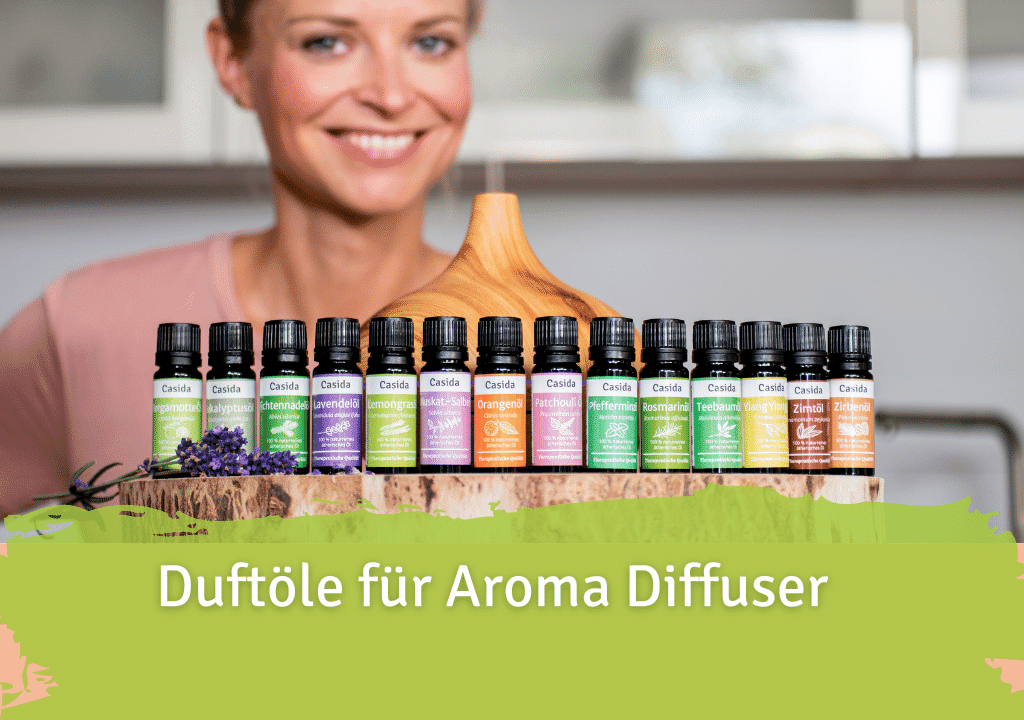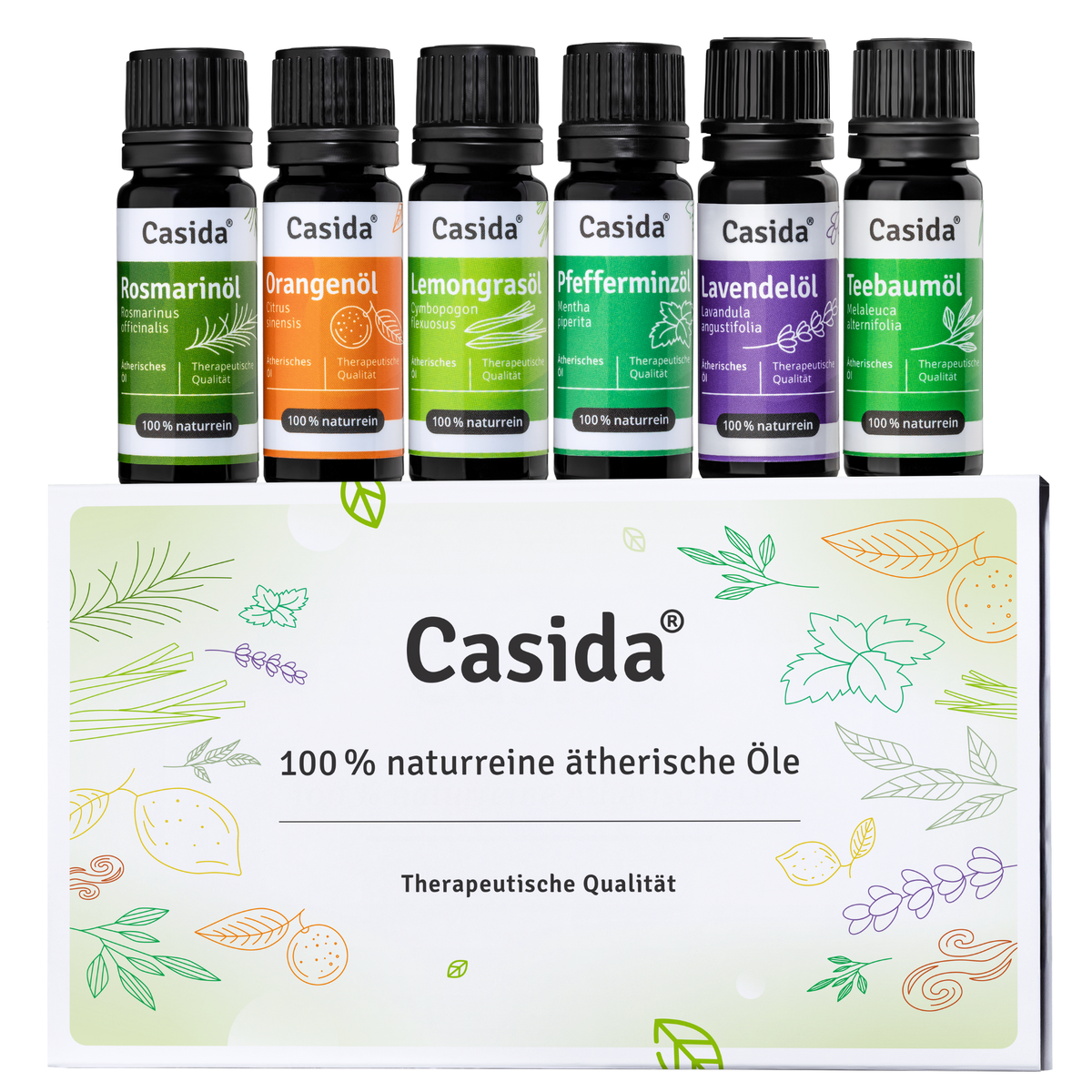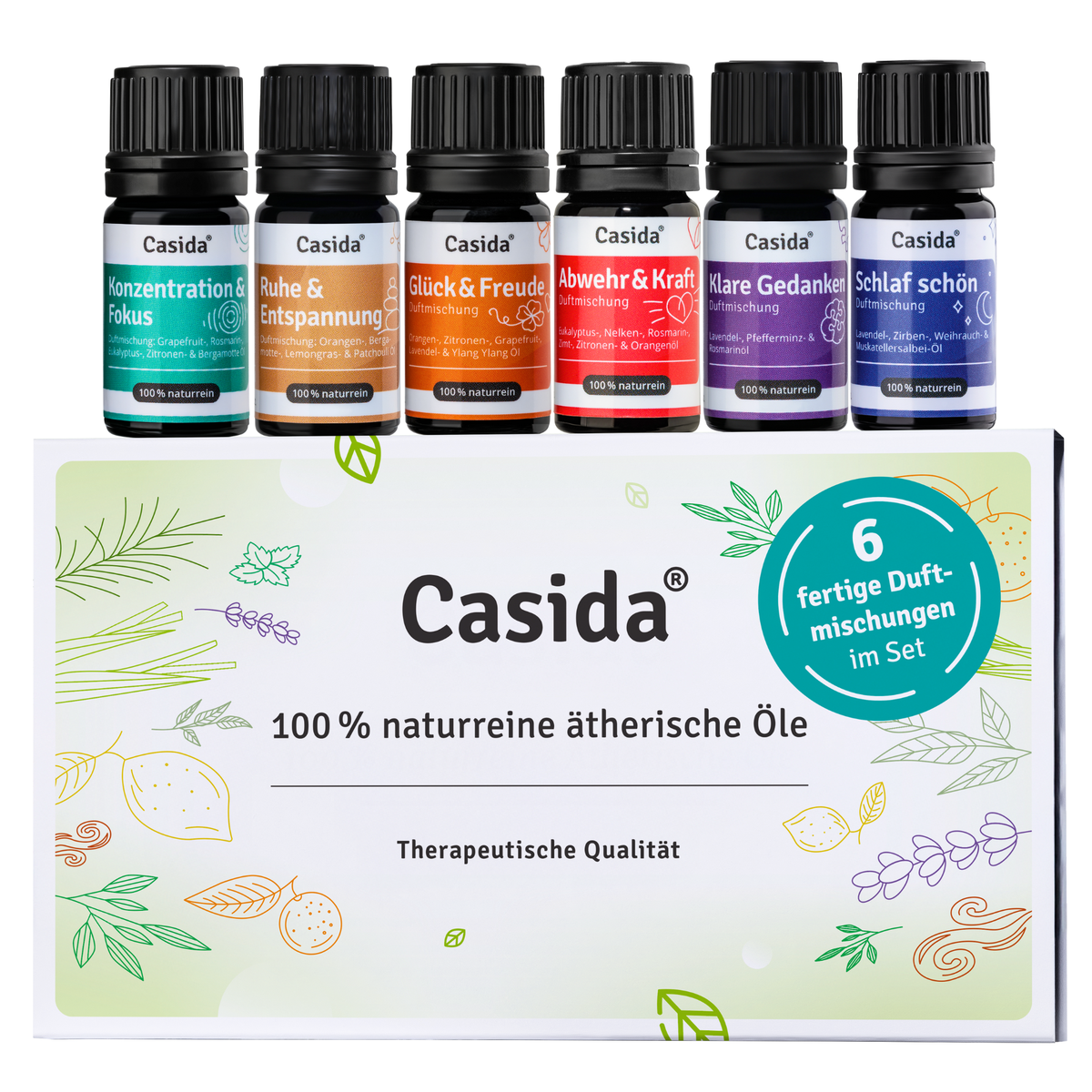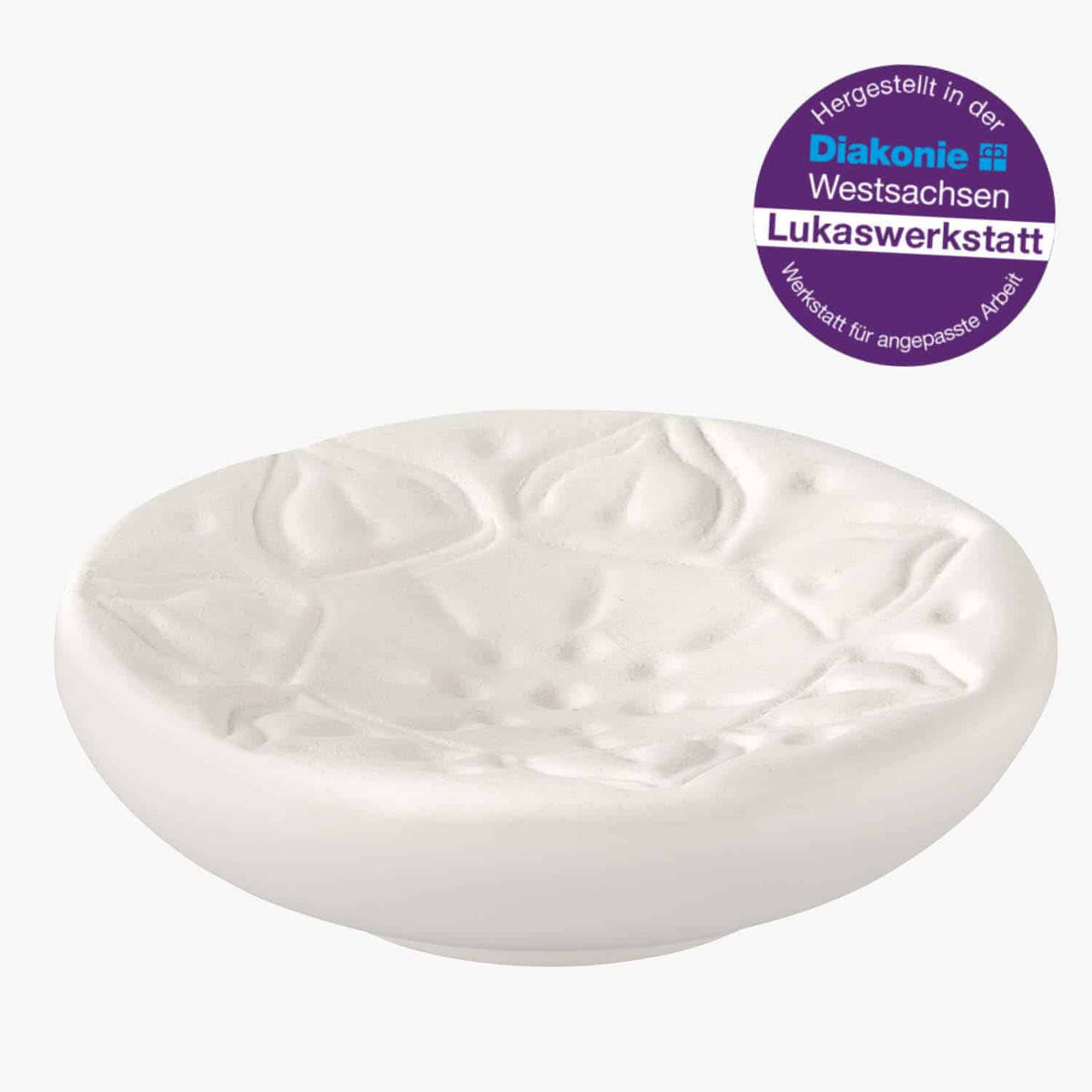There are countless fragrance oils for diffusers and fragrance lamps available to buy for room scenting. But not all fragrance oils are the same. We recommend that you always use natural essential oils - i.e. real plant essences - rather than synthetically produced aromas. You can find out more about choosing the right fragrance oils and how to use them below.
Table of contents
Why use essential oils?
Essential oils are the best fragrance oils for diffusers because they are pure, natural plant essences. They are produced from plants by steam distillation and contain the valuable ingredients of the plant in a highly concentrated form. So when you smell them, you are breathing in pure nature!
And they are even more than just scented oils: essential oils are complex mixtures of multiple substances that contain numerous natural active ingredients that can have a positive effect on body and mind. This is why the targeted use of these fragrances is also known as aromatherapy.
A lot of plant material is needed to produce these oils - and these raw materials are limited. This is why natural essential oils are more expensive than synthetic fragrance oils. But it pays off. As pharmacists, we can only recommend that you use natural essential oils for fragrancing.
Our advice as pharmacists: When choosing scented oils, it is better to use natural essential oils such as those from Casida for their health benefits. As they can have a positive effect on mood and health, they are ideal as fragrance oils for diffusers.
Note for allergy sufferers: Just like synthetic fragrances, essential oils can cause skin irritation or allergies if you have sensitive skin or a corresponding disposition.
Synthetic fragrance oils and their effects
Synthetic fragrance oils and fragrances can be produced in much larger quantities and are therefore cheaper. Synthetic fragrances are produced chemically and are further divided into "nature-identical" and fully synthetic fragrances. "Nature-identical" only means that the fragrance has a model in nature.
Synthetic fragrance oils have a longer shelf life and their fragrance lasts longer in the air than natural, volatile plant essences. Conversely, they are also more difficult to break down. They can be deposited in the human body, in animals and in nature. In the 1990s, for example, the musk compounds frequently used by the fragrance industry at the time were detected in breast milk*.
Which fragrance oils are suitable for diffusers?
The first diffusers were primarily developed for therapeutic purposes so that users could benefit from their health advantages. This is because modern devices humidify the room air and nebulize scented oils in the room. Depending on the desired fragrance effect, any natural essential oil can be nebulized in the diffuser. For a stronger fragrance effect, different essential oils can be combined or ready-made fragrance blends can be used.
These fragrances are suitable for the most typical areas of application:
- Lavender - Lavender oil is the classic essential oil and is particularly popular for its calming effects. However, it is also used as an insect repellent and is said to have a positive effect on the immune system.
- Eucalyptus - Eucalyptus is particularly popular as a fragrance oil for diffusers because it neutralizes unpleasant food and tobacco smells. As an essential oil, it also helps with respiratory tract infections. Its ingredients have an antibacterial and expectorant effect, making breathing easier.
- Rosemary - Many students and professionals use rosemary scented oils for diffusers, as its ingredients are said to have a stimulating and concentration-enhancing effect.
- Peppermint - Peppermint oil helps against tiredness and lack of concentration and can also be helpful for headaches.
How do I recognize the best fragrance oils for diffusers?
As described above, synthetic fragrance oils can have negative effects on people and the environment. A naturally pure essential oil contains no additional substances and stands for quality and naturalness. The term "nature-identical" can also be easily misunderstood. Therefore, always read the list of ingredients (INCI) carefully.
Casida's 100% natural oils always contain the botanical name of the parent plant and the part of the plant from which the oil was extracted (usually "peel" for peel or "leaf" for leaf). Casida orange oil, for example, has the following ingredients:
- Citrus Aurantium Dulcis (Orange) Peel Oil
- citral*
- limonene*
- linalool*
*= natural components of the essential oil
However, if a fragrance oil contains "aldehyde" on the INCI list, this indicates a synthetic fragrance. Sometimes the oils from some suppliers are also diluted with alcohol or even sunflower oil - you can also recognize this on the list of ingredients.
All essential oils and oil blends from Casida are 100% natural, highly concentrated and undiluted - ideal fragrance oils for diffusers.
How do I use scented oils for diffusers?
A modern ultrasonic diffuser has a water tank into which you first fill water up to the mark. Then, depending on your mood, add a few drops of scented oil, put the cover back on the device and switch it on. If you want a stronger fragrance, add a few more drops of fragrance oil. You can experiment with the dosage according to your own wishes and needs. Everyone's sense of smell is different and can also depend on your mood on the day. One to two drops of scented oil per 100 ml of water is a good average.
Important note / disclaimer:
As pharmacists, we share our pharmaceutical expertise and wealth of naturopathic experience in the Casida guide. An individual diagnosis and consultation is necessary in every case. Therefore, this offer cannot replace medical advice. It is not intended to treat, cure or prevent any disease. It is not a substitute for medication or other treatments prescribed by a doctor.








